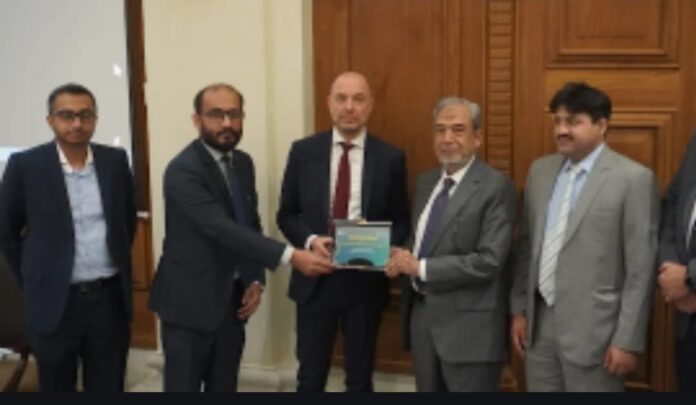- Advertisement -
ISLAMABAD, Apr 10 (APP):Experts at a high-level workshop have underscored the need to harness public-private partnerships to embrace carbon neutral industrial growth as international carbon taxation mechanisms would cast burden of increased levies and taxation on carbon-intense industries.
The workshop on ‘Leveraging Private Sector Engagement to Harness the Potential of Carbon Markets in Pakistan’ was organized by Sustainable Development Policy Institute (SDPI) in collaboration with the Embassy of Denmark and Overseas Investors Chamber of Commerce and Industry (OICCI), said a press release issued here on Thursday.
Reinforcing the need for long-term political commitment and public-private partnerships, Mr Jakob Linulf, the Ambassador of Denmark to Pakistan, said: “Denmark has completely transformed its energy mix into renewables over five decades; with its vast solar, wind, and biomass potential, Pakistan can do the same.” He also confirmed Denmark’s willingness to provide energy efficiency technology and foster clean energy investment in Pakistan.
Dr. Abid Qaiyum Suleri, Executive Director of SDPI, said: “Pakistan is going into negotiations with the IMF under the $1.5 billion Resilience and Sustainability Facility, thus a carbon levy, likely embedded in fuel or electricity prices, is on the horizon.”
He warned that without domestic mechanisms in place, Pakistan’s exporters could face carbon tariffs under the EU’s Carbon Border Adjustment Mechanism (CBAM), particularly in high-emission sectors like textiles and food. “Our electricity sector is already 1.44 times more carbon-intensive than the EU average. However, carbon pricing readiness is no longer optional but rather it’s imperative,” he said.
M Abdul Aleem, the Secretary-General of Overseas Investors Chamber of Commerce and Industry (OICCI), discussing the private sector’s growing role in climate conversation, said: “OICCI is proud to serve as Pakistan’s private sector voice on global platforms.” He further said: “we’ve actively participated in COP forums, representing Pakistan’s private industry at the Pakistan Pavilion during COP-29; Carbon markets are a transformative opportunity to align climate ambitions with economic incentives.” Mr Aleem emphasized OICCI’s readiness to act both as a project developer and carbon credit buyer, helping to generate capital, drive technological diffusion, and support the integrity of Pakistan’s emerging carbon market.
Dr. Khalid Waleed, SDPI’s Research Fellow, called for high-quality carbon credit generation to unlock green finance. He cautioned that ‘Pigouvian taxes’ while theoretically sound, could hamper industrial growth in Pakistan’s fragile economic context. Instead, he advocated for carbon offset mechanisms under Pakistan’s Carbon Trading Policy.
Globally, he said, 70% of carbon revenue between 2021–2024 came from removal-based projects, amounting to $30 billion. “Nature-based solutions garnered $20 billion of this. This is where Pakistan has immense potential,” he noted, citing projects like Delta Blue Carbon, which could scale mangrove forests for nature-based offsets.
Andrew Bailey of BASF and OICCI Pakistan said that Carbon markets are not just about trade — they’re about transforming the way we produce, consume, and protect our planet. “The private sector must step up as a catalyst for this change,” he suggested.
Engineer Ubaid ur Rehman Zia, Head of SDPI’s Energy Unit, spotlighted the urgency of policy alignment in the wake of global developments like the Carbon Border Adjustment Mechanism (CBAM) and carbon levies. “With Pakistan’s constrained fiscal space, we must actively include the private sector in this conversation to avoid economic fallout and ensure alignment of our supply chains with global standards,” he stated.
Sana Rasool, Carbon Market Specialist at Ministry of Climate Change and Environmental Coordination, briefed the participants about the United Nations Framework Convention on Climate Change (UNFCCC)-approved methodologies for carbon credit development.
Dr. Irfan Yousaf provided a technical roadmap for increasing private sector participation in Pakistan’s carbon market framework.
John Paul from Clean Commodities Exchange and Saleha Qureshi from SDPI also offered insights into global best practices, innovations in carbon-negative technologies, and trends in voluntary vs. compliance carbon markets.
Zainab Naeem, Head of Ecological Sustainability and Circular Economy at SDPI, explained the economic fundamentals of carbon credits, emphasizing their validity and accountability.

